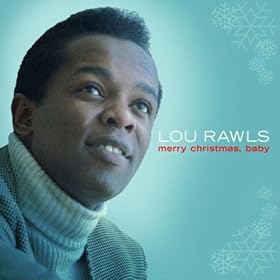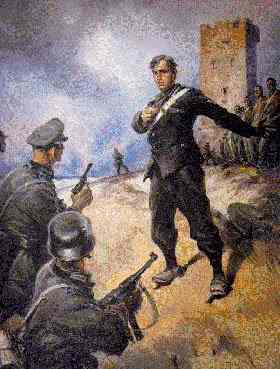The other day, I saw a picture making the rounds on the Internet: a sign that says that homosexuals, drug users, gangsters, feminists, Mormons, Buddhists, drunkards, Baha’is, Catholics, wife-beaters, atheists, New Age thinkers, Democrats, environmentalists, Promise Keepers, abortionists, effeminate men, racists, Scientologists, Emos, government recipients, adulterers, fornicators, thieves, Muslims, Jehovah’s Witnesses, perverts, idolators, pagans, loud mouthed women, agnostics, liars, freeloaders, liberals, high-fallutin’ sophisticated swine, and sports nuts all loved the devil and were in need of repentance and to then believe in Jesus. Leaving his punctuation errors aside, I’d like to address the charges and exhortations made by the sign-maker.
Jesus said, “As I have loved you, love one another.”
That’s a tall order, really. I could easily join in and add and subtract from the list above, but that would not be loving one another. And maybe there are people in those groups that love the devil, as evidenced in their actions, but that does not condemn the group as a whole. Neither does it excuse those who do evil that are members of other groups not mentioned. Nevertheless, we should not condemn the sinner. We have to find forgiveness in our hearts and then find the capacity to reach out in love.
This is a big world, with many competing, confusing views. I can’t hate a man that’s trying to good in the way he knows best, but follows after a different religion than mine – or no religion, as the case may be. If someone’s trying to do good, I have that in common with him. I call it the pure love of Christ, he may call it the pure love of God or the pure love of mankind – whatever we call it, it’s pure, and it’s love, and it uplifts people. We bless lives by expressing love and forgiveness.
What then of the liars, wife-beaters, drug users, gangsters, perverts, and so on? People whose sins also run afoul of the law? Love them, too. Jesus didn’t give us the option to pick and choose. We love them, too. We can pray for them, encourage them to do better, set a good example and hope they follow it, but at the end of the day, no prayer, encouragement, or example will help them if we haven’t first forgiven and loved them.
The labels themselves are misleading: I have a very good friend that’s on a sexual offender’s list. As it turns out, there are lots of ways for foolish young men to make it to that list that would not generate moral outrage. Child abuse and rape certainly repulse us and fill us with horror, but what about those lesser crimes that are lumped alongside them? Public urination behind a bar can get a man on that list. Making a misjudgment of months while still a teenager can also put a man on the list. Those guys still have to knock on doors in neighborhoods and explain their convictions at every job interview. If our society could at least forgive and love them, we’d have a little less hardship dealt out on a daily basis.
The French have a saying, “To understand is to forgive.” Sadly, I suspect the chap that made the sign isn’t too fond of the French. So, I’ll turn to another J.C., this time Johnny Cash. He made it to a number of the groups on the list above, but he still claimed he felt the love of Jesus in his life and the power of forgiveness. He may have been, as he put it, “a C-minus Christian”, but he still knew that that was a passing grade… with a little love from the Teacher, no doubt. He didn’t hate with his music. He offered understanding, and from that, forgiveness, and from that, love. Johnny Cash is one of my heroes, warts and all. So I’ll let him close this post with a list of his own…
“Man in Black”
Well, you wonder why I always dress in black,
Why you never see bright colors on my back,
And why does my appearance seem to have a somber tone.
Well, there’s a reason for the things that I have on.
I wear the black for the poor and the beaten down,
Livin’ in the hopeless, hungry side of town,
I wear it for the prisoner who has long paid for his crime,
But is there because he’s a victim of the times.
I wear the black for those who never read,
Or listened to the words that Jesus said,
About the road to happiness through love and charity,
Why, you’d think He’s talking straight to you and me.
Well, we’re doin’ mighty fine, I do suppose,
In our streak of lightnin’ cars and fancy clothes,
But just so we’re reminded of the ones who are held back,
Up front there ought’a be a Man In Black.
I wear it for the sick and lonely old,
For the reckless ones whose bad trip left them cold,
I wear the black in mournin’ for the lives that could have been,
Each week we lose a hundred fine young men.
And, I wear it for the thousands who have died,
Believin’ that the Lord was on their side,
I wear it for another hundred thousand who have died,
Believin’ that we all were on their side.
Well, there’s things that never will be right I know,
And things need changin’ everywhere you go,
But ’til we start to make a move to make a few things right,
You’ll never see me wear a suit of white.
Ah, I’d love to wear a rainbow every day,
And tell the world that everything’s OK,
But I’ll try to carry off a little darkness on my back,
‘Till things are brighter, I’m the Man In Black.
– Johhny Cash
There’s love in those words, and no matter what his faults may have been, I’ll listen to them and take comfort in them. I’ll pray that I can put the wisdom of those words into my life. I want to be a better man, and I can do that only by walking my own road and taking the help I can get – not by throwing stones at those that are different from me.

 There’s a glib line that “there are no Italian military heroes.” It’s completely wrong. There’s one who stands out in my mind as the epitome of the soldier, a man willing to lay down his life to protect those of others.
There’s a glib line that “there are no Italian military heroes.” It’s completely wrong. There’s one who stands out in my mind as the epitome of the soldier, a man willing to lay down his life to protect those of others.